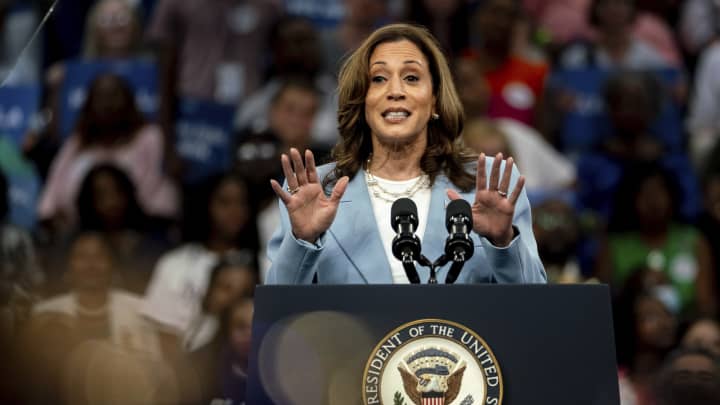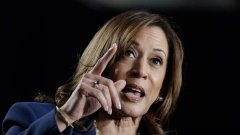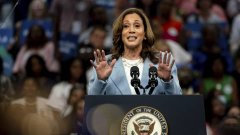
Vice President pledged to lower costs for consumers by cracking down on high and hidden fees, taking up the crusade against that has animated 's economic platform.
"I will take on price gouging and bring down costs," Harris announced to a worked up crowd of more than 10,000 supporters in on Tuesday evening.
Yet the event will be remembered for Harris' direct challenge to her Republican opponent, former President , to debate her.
"Donald, I do hope you'll reconsider, to meet me on the debate stage," Harris said directly into the camera during her speech. "Because, as the saying goes, if you've got something to say, say it to my face."
Trump has he will participate in a Sept. 10 debate hosted by ABC News that he had agreed to when Biden was the likely nominee. In an interview Monday night, Trump said "the answer's yes," before adding "But I can also make a case for not doing it."
With just 98 days until the , the is on a turbo charged timeline to develop its own policy proposals.
Harris' economic pitch on Tuesday closely echoed Biden's, for the stubbornly high cost of living that has darkened voters' for the past two years.
"We will take on corporate landlords and cap unfair rent increases," Harris said to the roaring Atlanta crowd. "We will take on big pharma to cap prescription drug costs for all Americans."
"We will ban more of those hidden fees and surprise late charges that banks and other companies use to pad their profits."
On a more granular level, it is still unclear what Harris' economic policy agenda would look like if she won the presidency.
Some business leaders believe Harris would pursue a softer regulatory approach. Her rhetoric Tuesday evening did not hint in that direction, however.
Ever since dropped out of the race, Harris has enjoyed a surge of grassroots momentum and high-dollar donations.
Harris' campaign has raised more than $200 million, two-thirds of which came from new donors, according to the campaign. Its volunteer force has been boosted with 360,000 new sign-ups.
The wave of support puts swing states like Georgia back in play for Democrats.
A new of battleground states released Tuesday found a statistical dead-heat, with support for Harris at 48% and Trump 47%, in the seven swing states likely to determine who wins the Electoral College in November.
The poll found Harris leading Trump in four of the seven, though all but one state fell within the survey's margin of error. In Michigan, the vice president was ahead of Trump by 11 points, a stunning turnaround for a state where support for Biden had been fraying.
In Georgia, Harris and Trump are tied, underscoring that even buoyed by a new groundswell of Democratic enthusiasm, Harris is just neck-and-neck with Trump. The poll surveyed 4,973 registered voters across the battlegrounds from July 24 to July 28.




